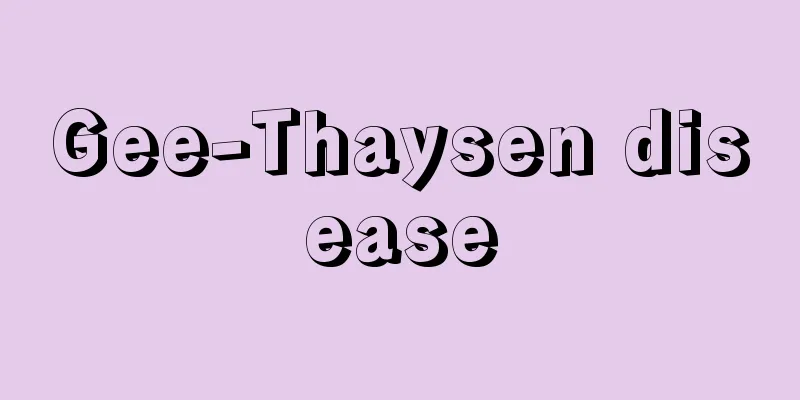World

|
〘Noun〙① Buddhist term. (i) (From the Chinese translation of lokadhātu. "Yo" means the three worlds of past, present, and future, and "kai" means north, south, east, west, up, down) Refers to the whole of time and space in which sentient beings live. The mountains, rivers, and lands where people and living things live. The Saha world. The 3,000 great worlds. *Bunka Shūreishū (818), mid-section, Wasuga Kiyotaka Shochū (Emperor Saga), " I do not know what world will appear to save all living beings ." *Shobogenzō (1231-53), Kobutsushin, "The so-called world, all ten directions, is the world of Buddhas." [The Lotus Sutra - Jobon] (b) A world of non-action such as the realm of Buddha or the Pure Land. 2) (More abstractly) The totality of a certain area that surrounds humans and in which they live. (i) The whole of human society. The area where people live. Society. The world. ※The Bamboo Cutter (late 9th century - early 10th century) "Men of the world, unreliable and humble , how could they have obtained Princess Kaguya? How could they have seen her? Hearing the sound, they were filled with admiration and confusion." ※The Tale of Soga (around the Northern and Southern Courts) 1 "Though I doubt it, the world is narrowed, and I am saved instead of shame and humiliation." (Ro) (I) If you divide it into the known area to which you belong and the unknown area other than it, the area of each range. ※Utsubo (around 970-999) Rojojo "As you live your life as an old man in an unknown world, you see the limit of sorrow." (Ha) The whole expanse of the earth. Especially the collection of nations. All countries. The earth. ※Orandatensetsu (1795) Key "The people of the far west send commercial ships to all countries of the world, and the country that they cannot reach is Korea ." ③ The whole area. Everywhere. ※The Bamboo Cutter (late 9th century - early 10th century) "How can this be ? A swift wind blew, the world became dark, and the boat was driven away." ④ A place where entertainment takes place. Also, the entertainment itself. ※Sakehon, Sekifujinden (1753) "From an early age, I was immersed in the world 's sophistication , and I was never blinded by any of the tricks of the trade." ⑤ In Kabuki and Joruri, a type of specific era, place, and group of characters that serve as the background for a play. "The World of Gikeiki" and "The World of Higashiyama." ※Kakuhon, Gekiba Suigon Maku no Soto (1806) Part 1 "First, Sekehe was Soga, and he quickly transformed into the three roles of Tora, Shosho, and Tsukisayo." ⑥ A group of people of the same type. A society formed by people who have a certain commonality, such as occupation, generation, or field of expertise. Also, a society formed by animals that have a commonality. "The world of politics," "The world of children," "The world of fish." 7. The whole field created by a creative work in literature, theater, art, music, etc. Also, an abstract view of the whole created by the creator. "The world of the Tale of Genji," "The world of Picasso." 8. The field in which one is good at. The range in which one can act freely. *Kibyoshi Shingaku Hayasosou (1790), Vol. 2, "From now on it is my world." 9. (Translation of "world Welt") In philosophy, the whole that includes all things and processes that exist in the same space and time and are linked by interactions. The universe. In epistemology, the whole that includes the objective world of sensibility, the conceptually constructed mechanical world, the psychological world, the world of direct experience, etc. [Tetsugaku Jigen (1881)] Source: The Selected Edition of the Japanese Language Dictionary About the Selected Edition of the Japanese Language Dictionary Information |
|
〘名〙① 仏語。(イ) (lokadhātu の漢訳から。「世」は過去・現在・未来の三世、「界」は東西南北上下の意) 衆生(しゅじょう)が住む時間と空間との全体をいう。人や生物が住む山川国土。娑婆世界。三千大千世界。※文華秀麗集(818)中・和菅清公傷忠法師〈嵯峨天皇〉「不レ知何世界、出現救二蒼生一」※正法眼蔵(1231‐53)古仏心「いはゆる世界は、十方みな仏世界なり」 〔法華経‐序品〕(ロ) 仏の境界や浄土のような無為の世界。② (より抽象的に) 人間をとりまき、人間がそこで暮らしているある範囲の総体。(イ) 人間社会の全体。人が生活する地域。世間。世の中。※竹取(9C末‐10C初)「世界の男、あてなるも賤(いや)しきも、いかで此かぐや姫を得てしがな、見てしがなと、音に聞きめでてまどふ」※曾我物語(南北朝頃)一「疑ひ事わりなれども、せかいをせばめられ、耻辱にかへて助かるなり」(ロ)(イ) を、自分が属している既知の地域、それ以外の未知の地域などと分けた場合、それぞれの範囲の地域。※宇津保(970‐999頃)楼上下「しらぬせかいに、とし若うしていきつたはり給つつ、悲しきめの限りを見給て」(ハ) 地球上のすべてのひろがり。特に、諸国家の集合体。万国。地球。※和蘭天説(1795)凡例「遠西の人世界(セカイ)万国に商舶を通じ、到ざるの邦鮮し」③ あたり一帯。そこらじゅう。※竹取(9C末‐10C初)「いかがしけん、疾(はや)き風吹て、世界暗がりて、ふねを吹もてありく」④ 遊興の行なわれる場。また、その遊興。※洒落本・跖婦人伝(1753)「幼少より、世界(せカイ)の、粋の中に、もまれて、諸訳手管の仕かけ迄、一つとして、くらからず」⑤ 歌舞伎・浄瑠璃で、戯曲の背景となる特定の時代・所・人物群の類型。「義経記の世界」「東山の世界」。※滑稽本・戯場粋言幕の外(1806)上「まづ世界(セケヘ)が曾我で、虎、少将、月小夜と三役の早変を出しやした」⑥ 同一種類のものの集まり。職業、世代、専門分野などで、ある種の共通点をもつ人が形成する社会。また、共通性をもつ動物が形成する社会。「政治の世界」「子どもの世界」「魚の世界」⑦ 文学、演劇、美術、音楽などで、ある創作物が作りあげている、全体の場。また、創作者が作り上げている全体を観念的にとらえたもの。「源氏物語の世界」「ピカソの世界」⑧ 自分が得意とする分野。自由にふるまえる範囲。※黄表紙・心学早染艸(1790)下「是からはおいらがせかいだ」⑨ (world Welt の訳語) 哲学で、同一の空間、時間内に存在し、相互作用によって結びつけられているすべての事物や過程を含む全体。宇宙。認識論では、客観的感性界、概念的に構成された機械的世界、心理的世界、直接体験の世界などを含む全体。〔哲学字彙(1881)〕
出典 精選版 日本国語大辞典精選版 日本国語大辞典について 情報 |
Recommend
Nipponitella
...the largest species, such as the Permian Polyd...
samāvartana (English spelling)
…The word comes from the Sanskrit verb meaning “t...
Picky eating - henshoku
This refers to an unbalanced diet, where a person...
Al-Jazzār, Aḥmad Pasha
[Born] Around 1734 [Died] 1804 Middle Eastern poli...
Amanu [island] - Amanu
...There are many marae (stone religious ruins) a...
Mikhail Tarielovich Loris‐Melikov
1825‐88 Russian soldier and politician. Born into ...
Arima Harunobu
A Christian feudal lord in the Azuchi-Momoyama pe...
Juel, J.
…The first Danish artist to achieve international...
Cole, AH (English spelling) ColeAH
...Casebook in American Business History (1939) b...
Nagamori Okabe
1568-1632 A daimyo in the early Edo period. Born ...
Tsurugi Mountains - Tsurugi-sanchi
A mountain range that stretches from the western p...
Riverboat Magistrate - Kawabunebugyo
〘Noun〙 One of the titles of the Edo Shogunate. It ...
Kushigamine (Fukushima)
...It is called "Aizune" in the Eastern...
Archaic Smile - Archaic Smile
…the smile-like expression seen on the mouth of G...
Stribog
… [Origin of the Gods] The Primary Chronicle (als...









